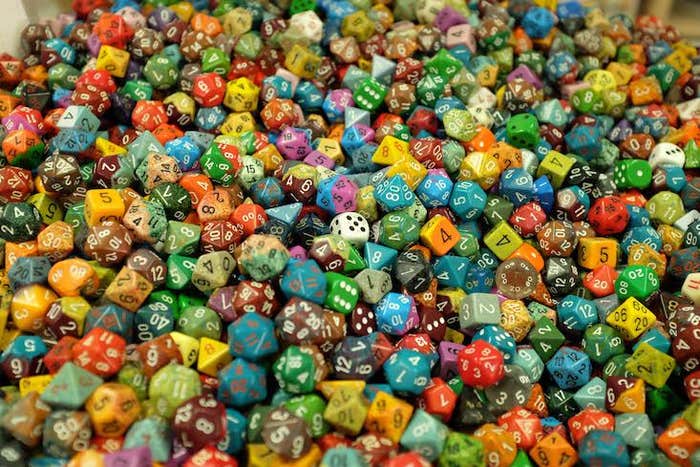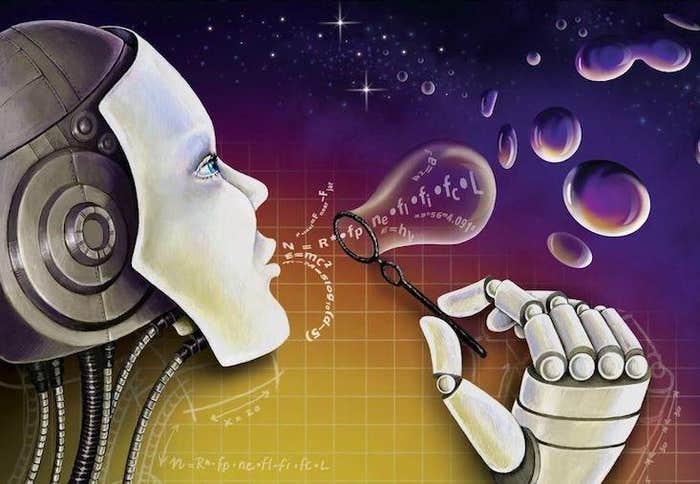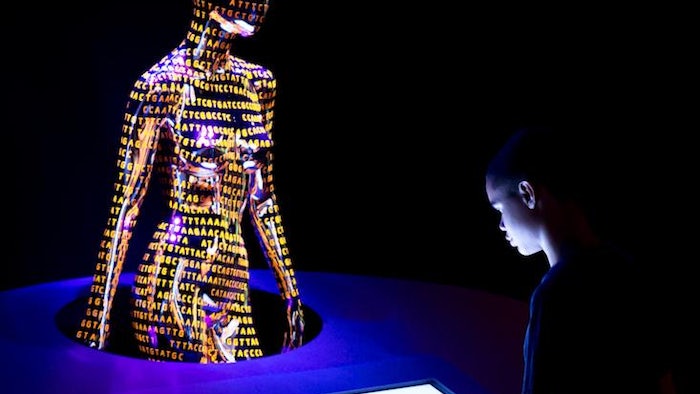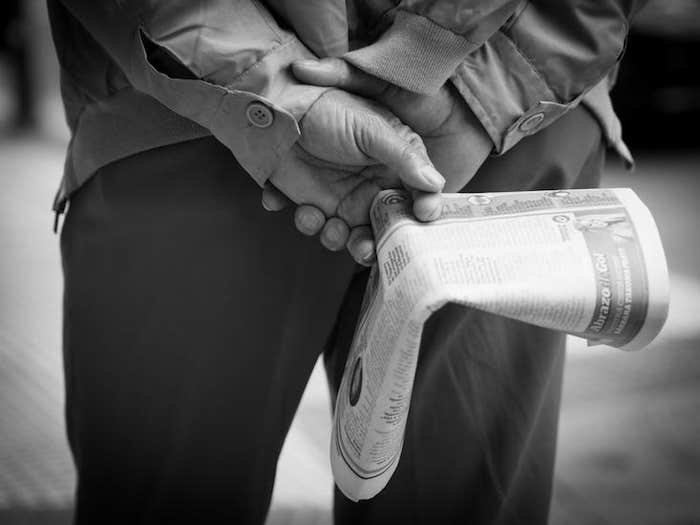Brian Gallagher
Color Is a Dance Between Your Brain and the World
When Robbert Dijkgraaf was a little boy, growing up in the Netherlands, he’d play in his home attic after school, often with a friend. It was dark inside except for the light streaming in from one window. One time, they closed the shades so only a sliver of photons could pass through. Robbert, holding a […]
The World According to Scientists
In Victorian England, one pastime among friends and family was to jot down your “Confessions”—answers to semi-serious questions of taste and principle. One day, in the spring of 1865, Karl Marx had a go. Several of his answers spotlight habits of the scientific mind. The quality you like best? Simplicity. The vice you hate most? Servility. […]
What Donald Trump Teaches Us About the Fermi Paradox
The “signal leakage” of our communications is becoming more and more scarce, not more abundant.Illustration by Danielle Futselaar / Flickr Reports of U.F.O. sightings were commonplace in the 1950s. The C.I.A. recently came clean, on Twitter, concerning its role: “Reports of unusual activity in the skies in the ‘50s? It was us.” Though not entirely—some […]
The Case for More Intellectual Humility
I can remember, almost a decade ago, when I was convinced out of my “Young-Earth” Creationism. It was almost a process of de-radicalization. During high school I was a generic Christian, but then some friends suggested I watch a video of a pastor online and, well, you can guess the rest. The message encouraged spreading […]
The Weird Age of “Previvors” Is Coming
Siddhartha Mukherjee has an arresting thought experiment: What if, along with your familiar elementary-school report card, you had a genetic report card—one that read out your propensity for getting each letter grade in each subject? If you get an A in math, and your genetic report card says that your propensity for getting that grade […]
How Should Society Judge a Defendant with a Brain Tumor?
After a visit from one of his patients in March, 1966, the psychiatrist Maurice Heatly noted, “This massive, muscular youth seemed to be oozing with hostility as he initiated the hour with the statement that something was happening to him and he didn’t seem to be himself.”That patient was Charles Whitman, a 25-year-old former Marine […]
It’s Easy to Make Enemies of People We Only Read About
Last week, Marco Rubio, a United States senator from Florida, found himself in an unfamiliar position. He felt compelled to remind his more senior colleagues in the Senate of the value of rational debate. Word of this didn’t really catch on until The Washington Post, two days later, ran the headline: “Marco Rubio just gave […]
Science Is Not Constantly Being Proved Right
It’s a subtle point, but the British comedian Ricky Gervais was not quite right when he told Stephen Colbert on The Late Show yesterday, “Science is constantly being proved all the time.” Perhaps he misspoke. He was put on the defensive. Colbert, an idiosyncratic but sincere Catholic, was not really playing devil’s advocate when he […]
Why We Love to Blame 2016
You may have noticed it by now: the—I guess I’ll call it an impulse—to anthropomorphize “2016.” It began gradually. First, we objectified it, likening it to a disturbing film, a force of nature, broken hardware. As Slate put it:In trying to wrap our heads around 2016’s all-reason-and-logic–defying onslaught of tragedy and absurdity, we objectified the […]
Why Christopher Hitchens Was a Hero to Scientists
The writer had a reverence for science and philosophy, and a conviction that both should be the basis of personal belief and ethics in society.



















